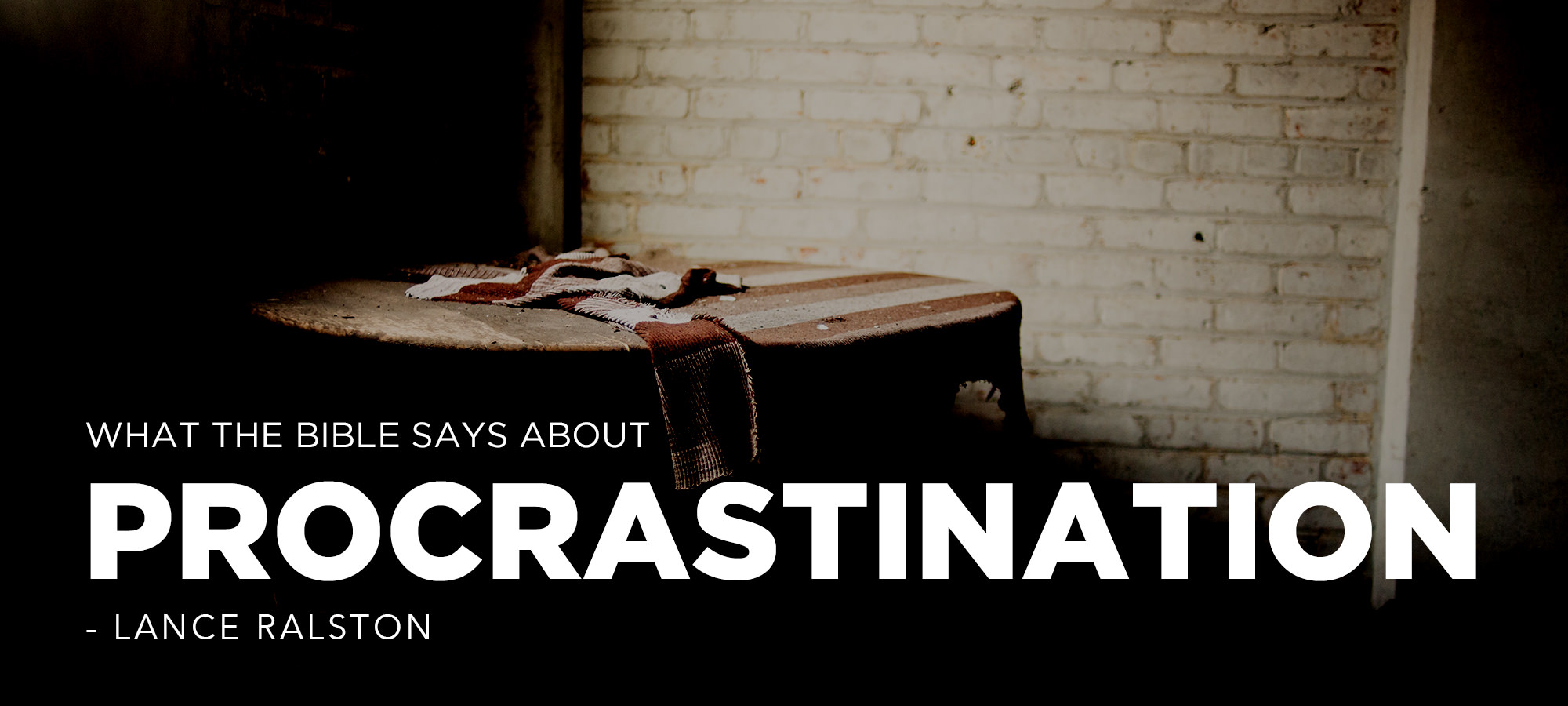
When you make a vow to the LORD your God, you shall not delay to pay it; for the LORD your God will surely require it of you, and it would be sin to you. Deuteronomy 23:21
When you make a vow to God, do not delay to pay it; For He has no pleasure in fools. Pay what you have vowed. Ecclesiastes 5:4
“I’ll do that one day,” was Markus’ mantra. He’d see some household chore that needed to be done, but always felt too busy to do it right then. He deferred the chore to some unspecified future date.
A decade later, he lived in a house with a decade’s worth of backed-up chores. But it wasn’t just the house that had suffered. The family that lived there did as well. Markus’ marriage suffered. His wife had asked him to take care of things over the years but he always deferred, promising to take care of it “later.” When “later” arrived in the form of his wife threatening to leave, he was baffled. After all, he provided well for her; she had a nice home. How could she leave? He wondered.
So Markus tried to make up for lost time by following through on some of the things he had postponed, and quickly realized in what poor shape his house really was. The more he did, the more he realized how bad things had gotten. And he quickly realized the state of his house was a reflection of the state of his family. He hadn’t just neglected household chores; he neglected the relationships that were supposed to happen in that house.
Markus experienced something many others have. Procrastination can turn deadly. While the command of Deut. 23:21 speaks specifically to vows made to God regarding the promise of a sacrifice, a larger principle of following through on all our promises flows from it. When we marry, we make a promise to be a companion and helper to our mate. We need to follow through on that promise by being helpful and not procrastinating. Delayed obedience is the same as disobedience.
Delayed obedience is the same as disobedience.
When we put off doing something we really could and should do now, it’s easier to delay the next thing that comes up. Repeat that a few times and there develops a decisional inertia that builds to become a habit of deferring everything we deem unpleasant or a bother. Once we have the habit of deferring simple chores, it becomes easier to delay more important things, like investing in our spiritual lives and important relationships, like our spouse and children.
Repeatedly saying, “I’ll do that one day,” can lead to a day when everything that’s been neglected comes crashing down.
The Roman governor Felix is an example of someone who procrastinated to his own ruin. In Acts 24 we read, “Now as [Paul] reasoned about righteousness, self-control, and the judgment to come, Felix was afraid and answered, ‘Go away for now; when I have a convenient time I will call for you.’” [Acts 24:25] That more convenient time never came for Felix. His profligate life came crashing to an end when due to his corruption he was recalled to Rome by Nero.
Benjamin Franklin said, “You may delay, but time will not, and lost time is never found again.” Thomas Jefferson said, “Never put off for tomorrow, what you can do today.” Neither man was much of an example of walking with Christ, but they understood the wisdom of shunning procrastination.
Proverbs 27:1 says, “Do not boast about tomorrow, for you do not know what a day may bring forth.” The attitude that defers things to some undefined “one day” is an assumption we’ll be around. We may not. And what we left undone or unsaid could make a vast difference for those we leave behind.
I’ve counseled not a few whose loved ones have died, leaving a pile of unfinished living behind to clean up and sort through.
If you’re someone who’s left a lot of things to be done “one day,” may I suggest you make today and tomorrow, and the day after one of those days, and begin to pay all those vows and promises. Break the habit of procrastination.






